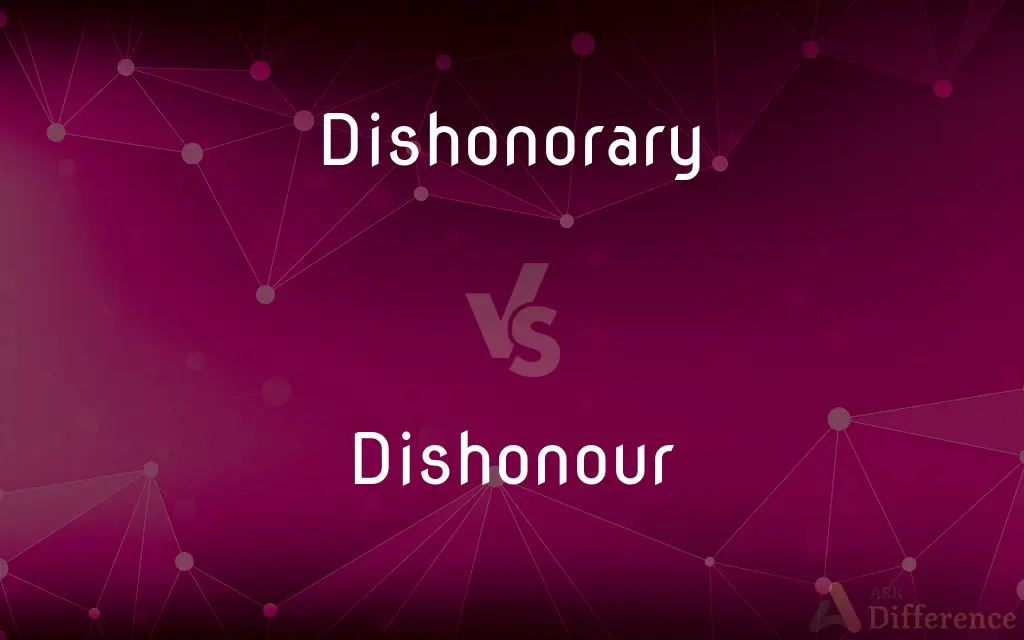Dishonorary vs. Dishonour — What's the Difference?

Difference Between Dishonorary and Dishonour
ADVERTISEMENT
Compare with Definitions
Dishonorary
Causing dishonour; tending to disgrace.
Dishonour
Shame or disgrace.
You have brought dishonour upon the family.
Dishonorary
Bringing dishonor on; tending to disgrace; lessening reputation.
Dishonour
Lack of honour or integrity.
Dishonour
(legal) Failure or refusal of the drawee or intended acceptor of a negotiable instrument, such as a bill of exchange or note, to accept it or, if it is accepted, to pay and retire it.
ADVERTISEMENT
Dishonour
To bring disgrace upon someone or something; to shame.
You have dishonoured the family.
Dishonour
To refuse to accept something, such as a cheque; to not honor.
Dishonour
To violate or rape.
Dishonour
A state of shame or disgrace;
He was resigned to a life of dishonor
Dishonour
Lacking honor or integrity
Dishonour
Bring shame or dishonor upon;
He dishonored his family by committing a serious crime
Dishonour
Force (someone) to have sex against their will;
The woman was raped on her way home at night
Dishonour
Refuse to accept;
Dishonor checks and drafts
Share Your Discovery

Previous Comparison
Ohm vs. Kiloohm
Next Comparison
Check vs. Control














































